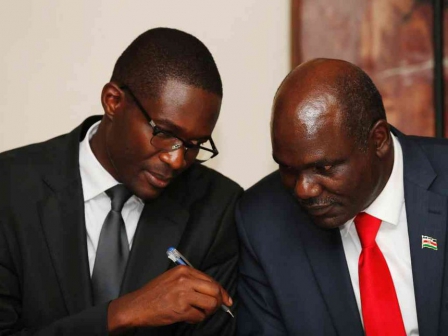×
The Standard e-Paper
Home To Bold Columnists

An attempt to reconstitute the current electoral commission for bungling the presidential elections will hit snag or create a constitutional crisis if it succeeds.
The constitutional provisions governing the removal of the commissioners and the role of President Uhuru Kenyatta in the process makes it impossible for the Wafula Chebukati-led team to exit at this time.